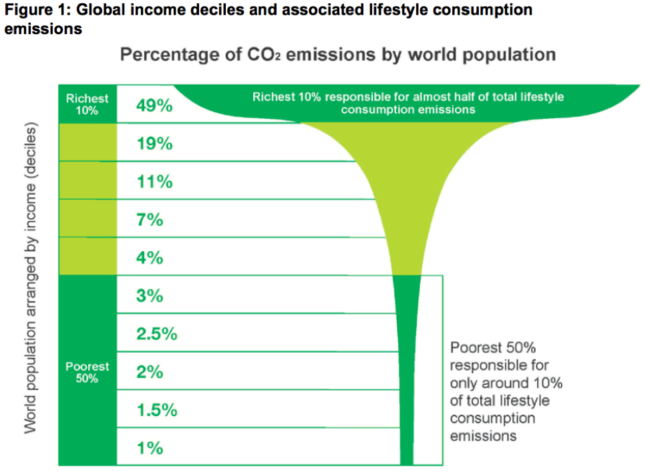“What should I do?” It is a question anyone who works in the realm of existential threats has heard. From others and from the internal voice that guides our own actions. Though intended to inform action it is a question that can easily result in inaction –no matter who has asked it– as we spiral into analysis of possible responses and their consequences. While some may see this analysis counter-productive, I think it is crucial. The pre-packaged answers we are handed require deep analysis of their consequences precisely because the stakes for action and inaction are so high. One response that demands serious reflection is: “Find ways to help reduce human population through the promotion of women’s rights and achievement of universally available contraception.” I find that I hold mixed feelings about this response.
I do not hold these mixed feelings because I underestimate the impact of P in the I = P*A*T equation or for any religious belief –I am fully agnostic and in favor of any kind of voluntary contraception. In fact, I am really happy that my country has one of the lowest fertility rates in the world (1.4 per woman), has almost free and universal access to contraception, teaches comprehensive sexual and reproductive health in schools, and that through a fierce fight women have claimed many more rights than in most countries in the world.
My reluctance towards the proposal is especially strong when proclaimed, directed or managed by the richest 30% of the world’s population who consumes 80% of the resources, as per the figure below. And when I observe that in some of the most consumerist and rich countries, from which these campaigns are mainly proposed to the whole world, the fertility rates are not necessarily decreasing through the two ways proposed above. Meanwhile, every new child in these countries burdens the world’s resources and sinks more than 50 new children in some rural regions of India.

Further, I believe it is quite cynic to campaign to achieve universal availability of contraceptives, when most of the people (counted in billions) lack access to some other basic needs, which I believe should and must be prioritized before contraception. I sincerely could not face a couple in Nigeria who does not have enough food to feed their family of three kids and give them a set of condoms and a manual in their native language on how to install an IUD, and nothing else. I am referring to the right to have the minimum of food, health, shelter and basic education. Proposing universal contraception to all of them, before solving the other basic problems, is what I see as very cynic.
I do not think we can honestly ask a young couple, anywhere in the world, to restrain their reproduction, “for the good of the future and the environment” (which is theirs, more than ours). I have three children, all of whom have decided to keep with fertility rates lower than my wife and myself, influenced by their personal situations and shifts in societal norms, not by a request or demand from my generation. I do not think we can ask young couples to, for instance, stop at one child per couple like in China, and well below the minimum reproduction rate of mammals (2.2 per female). I worked in China in the 80’s when the one-child-per-couple policy was in force, and I have seen quite a lot of human suffering from its enforcement.
The young couples of today are ABSOLUTELY not responsible for having arrived on a planet with 7.4 billion people. The proposal to reduce population, for the sake of justice, should start with the alive generations that reproduced in the past over the minimum to give space to the coming ones. Sorry if I appear rude.
In reflecting on the proposed response: “Find ways to help reduce human population,” I come to the following questions:
If we are going to deprive young couples of the right to reproduce if they wish to at the minimum rate needed as a species to stand still, what kind of human rights are we respecting? Is there any other essential human right above this one, apart from the right to life, to eat and to drink –which are still not granted for many billions?
Why do we have such a terror in developed countries of reformulating our own way of living that, when faced with a societal or environmental collapse, our championed action is reducing the population of others?
Why do we not consider that if we are going to collapse anyhow, then let the young couple die while having the right to reproduce as they wish to the last minute? Human remains, as far as I know do not represent a pollution problem for the planet. The waste (radioactive, plastic, CO2, NOx, SOx emissions, etc.) of a very peculiar and unique consumerist society, may in fact destroy the future for all living things in a way that returning 7.2 billion corpses back to the earth will not (for you are dust, and to dust you shall return).
In my opinion, the proposed responses of reducing human population and reducing consumption are equally unlikely. My vote is to prioritize reducing consumption, and then reducing population among the 30% of the world’s population who consume 80% of the resources. If we succeed in both, then, and only then, can we proudly go to preach human population control to the Democratic Republic of Congo or to Palestine (after having succeeded in Israel, both with similar exceedingly high reproduction rates). Not before.
Pedro Prieto is a Telecom Engineer who has worked around the world on telecommunications networks. Through this work Prieto developed an interest and concern in energy issues. Prieto is currently president of a solar PV company in Spain and vice president of the non-profit organization, the Asociación para el Estudio de los Recursos Energéticos (AEREN), which manages the web page Crisis Energética. AEREN works as an open space for debate and communications on energy issues and their role in demography, development, economy and ecology and is a reference in the Spanish speaking world for ASPO (The Association for the Study of Peak Oil and Gas), an international association of scientists devoted to the analysis and study of global peak oil and gas and its consequences for Mankind.
The MAHB Blog is a venture of the Millennium Alliance for Humanity and the Biosphere. Questions should be directed to joan@mahbonline.org
MAHB Blog: https://mahb.stanford.edu/blog/reflection-reduce-pop/
The views and opinions expressed through the MAHB Website are those of the contributing authors and do not necessarily reflect an official position of the MAHB. The MAHB aims to share a range of perspectives and welcomes the discussions that they prompt.
